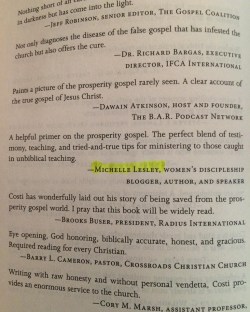Originally published July 27, 2018

“Lord, I’m just so frustrated!” I fussed, as I approached the time I had set aside for prayer this morning. Once again, the “I don’t want to” of my flesh was pulling against the “I know I need to” of my spirit like a heavy duty tow truck tugging on a kitten.
So I just ditched it. Well…sort of.
Prayer is pouring out your heart to God, right? Well, I turned on the water cannon. Reverently, of course…but with passion.
I told God how sick I was of this all-too-frequent stumbling block my flesh presented when it was time to pray, especially when I knew from experience that the feeling was fleeting and would go away after I had been praying for a few minutes. I told Him I was tired of a million other things I’d rather be doing, that I needed to do, coming to mind and further crowding out my desire to pray. I told Him I was sorry for all the times I had given in to the flesh and skipped my prayer time. I told Him I wanted Him to make this feeling go away and never come back.
As I poured out my complaint before Him, the Holy Spirit began leading me to examine the why of this whole situation. What was bringing about this pull of the flesh against prayer?
And that’s when it happened. God answered the “wrong¹” prayer.
You see, one of the things I pray every day is that God will reveal to me any sins I’m unaware I’m committing and lead me to repent of and forsake them.
And in that moment, that’s the prayer He chose to answer.
Not the prayer for the provision of an item my family needs. Not the prayer for healing of a loved one. Not the prayer that He would save all the lost people on my list.
Not the prayer I really wanted Him to answer.
God chose to reveal my sin to me.
You know why my flesh so often balks at prayer? Because in the dark, unsanctified recesses of my heart, I’m frustrated with God for not doing what I ask Him to do – now. I come to Him day after day, month after month, sometimes year after year, confessing the same sins, asking for the same provisions, and presenting the same requests, and I don’t see Him doing what I want Him to do when I want Him to do it.
Never mind that I could list hundreds of my prayers that He actually has answered, many of them in amazing ways. Never mind that I know what the Bible says about prayer well enough to teach on it and write articles about it. Never mind that I really do believe that God will answer my prayers for His glory and my good.
Uh uh. My flesh throws all of that right out the window and wants God to be my cosmic errand boy, delivering the goods on my timetable. I am selfish. I want everything to go my way immediately.
So that was pretty humiliating…but God didn’t stop there. No, there was more.
He opened my eyes to the fact that this sin problem I have relating to Him vertically is basically the same sin problem I have relating to people horizontally.
I yell at people in traffic to get out of my way. I get annoyed with my husband, irritated with my children, and impatient with fellow church members because I want them to do what I want, and I want them to do it now. I am selfish. I want everything to go my way immediately.
Oh, wretched man that I am! Who will deliver me from this body of death?
Paul was really onto something there. Fortunately, he answers his own question in his very next sentence:
Thanks be to God through Jesus Christ our Lord!
Romans 7:25a
Jesus. Jesus can help me to mortify this sin. And I can obey Him as He does His good work in me. How?
assuming that you have heard about [Jesus] and were taught in him, as the truth is in Jesus, to put off your old self, which belongs to your former manner of life and is corrupt through deceitful desires, and to be renewed in the spirit of your minds, and to put on the new self, created after the likeness of God in true righteousness and holiness.
Ephesians 4:21-24
I stop doing the sin (put off the old self). I remember what God’s Word says about that sin and about the righteousness I’m supposed to do instead (be renewed in mind). I do the righteous thing instead of the sin (put on the new self).
Ephesians 4 goes on to give some examples of what this looks like when dealing with real life sin:
Therefore, having put away falsehood, let each one of you speak the truth with his neighbor, for we are members one of another. Be angry and do not sin; do not let the sun go down on your anger, and give no opportunity to the devil. Let the thief no longer steal, but rather let him labor, doing honest work with his own hands, so that he may have something to share with anyone in need. Let no corrupting talk come out of your mouths, but only such as is good for building up, as fits the occasion, that it may give grace to those who hear. And do not grieve the Holy Spirit of God, by whom you were sealed for the day of redemption. Let all bitterness and wrath and anger and clamor and slander be put away from you, along with all malice. Be kind to one another, tenderhearted, forgiving one another, as God in Christ forgave you.
Ephesians 4:25-32
See how that works?
Stop lying. Remember what God’s Word says about lying and truth. Speak truth instead of lying.
Stop stealing. Remember what God’s Word says about stealing and the godly way to acquire and steward material things. Work an honest job and share with others instead of stealing.
Seems pretty simple and logical, right? It’s pretty clear cut when we’re talking about sinful actions. I can keep my mouth shut so lies and corrupting talk don’t come out and choose kind and truthful words to speak instead. I can keep my hands in my pockets or avoid that tempting store so I won’t steal, and get a job and share with others instead. But how in the world do I “put off” a sinful attitude like bitterness, wrath, anger and malice (and in my case, selfishness) when it’s just a feeling that pops up in my heart unbidden?
The world will tell you that you can’t control your feelings. And for the world, that’s true. It’s part of the sin nature of a lost person, the “old self”, to live your life by your feelings, even to be controlled by them. But that’s not the case for someone who has been genuinely born again and is indwelt by the Holy Spirit.
Part of the Fruit of the Spirit (the evidence that the Spirit is indwelling you) is self-control. That doesn’t just mean saying no to that second piece of cake. It’s the idea that sin is not our master anymore. We do not have to listen to and be controlled by sin, we can say no to it because we want to say yes to our new Master – Christ – and be controlled by Him.
Let not sin therefore reign in your mortal body, to make you obey its passions. Do not present your members to sin as instruments for unrighteousness, but present yourselves to God as those who have been brought from death to life, and your members to God as instruments for righteousness. For sin will have no dominion over you, since you are not under law but under grace.
Romans 6:12-14
Notice the wording here. It’s not “do your best” or “try” not to let your old master control you. It’s an authoritative, weighty, no-nonsense command: “Let not sin reign…sin will have no dominion”. God would not command us to do something that we’re incapable of doing, or that the Holy Spirit will not empower us to do. We can control and put off sinful thoughts, feelings, and attitudes.
Martin Luther once helpfully said:
“You cannot keep birds from flying over your head, but you can keep them from building a nest in your hair.”
I think about that quote often when it comes to putting off ungodly thoughts that pop into my brain. Here’s how it works:
First, preemptively pray the “wrong” prayer – the one your flesh won’t want God to answer – that He will make you aware of and convict you of sinful thoughts, feelings, and attitudes.
Next, when one of those thoughts rears its ugly head, stop what you’re doing, repent, and kick that rotten vulture right out of your hair. Make a definitive, proactive, Holy Spirit empowered decision of the will that you are not going to think that way. It helps me to say it out loud: “No. That thought is wrong. The Bible says ____ about that. I am not going to think that.” You might get some weird looks if you’re in public, but, hey, mortifying sin is worth it, right?
I tend to combine the “put off” (stop it) and “renew your mind” (What does the Bible say?) steps because pulling the Sword out of its sheath is a good way to kill sin. It’s the way Jesus modeled for us.
But how can I “put on” a right thought, feeling, or attitude? I mean, you can’t just conjure up godly feelings, can you? No. But what you can do is gather up nest-building materials for that “sweet Heavenly dove²”, the Holy Spirit, so He can shape your thoughts, feelings, and attitudes in a godly way:
Finally, brothers, whatever is true, whatever is honorable, whatever is just, whatever is pure, whatever is lovely, whatever is commendable, if there is any excellence, if there is anything worthy of praise, think about these things. What you have learned and received and heard and seen in me—practice these things, and the God of peace will be with you.
Philippians 4:8-9
There are godly things we can think about and godly things we can do (“practice”) that cooperate with the work the Holy Spirit is doing in our hearts.
Instead of thinking about that prayer that God isn’t answering right now, I can think about the prayers He has answered. And I can do something too. I can thank Him for those answered prayers and all of His good attributes in answering prayer.
Instead of thinking about how and when I want God to do things, I can think about His sovereignty and how good that is for me and everyone else. I can also do something: I can recite Bible verses I’ve memorized about the situation and sing songs of praise to Him.
Instead of thinking about how someone else is frustrating me by not doing what I want her to do, I can think about how she is made in the image of God, valuable to Him, and precious in His sight. What can I do? I can stop and pray for her. I can speak a word of encouragement to her. I can bless her with a gift or by serving her.
Thinking and practicing ungodly things feeds and grows your ungodly thoughts, feelings, and attitudes. But thinking and practicing godly things feeds and develops your godly thoughts, feelings, and attitudes.
Back in the Stone Age when dinosaurs roamed the earth and computers were brand new, programmers used to have a saying: “Garbage in, garbage out.” In other words, if you fed faulty commands into the computer, the performance you got out of the computer was going to be faulty, too.
The Christian heart is very much the same. “Godly in, godly out.” If you feed godliness into your heart, godliness will start coming out in your thoughts, words, and actions.
We don’t have to be mastered by sinful thoughts, feelings, and attitudes. Through the power of the Holy Spirit and by putting off the old self, renewing our minds through God’s Word, and putting on the new self by thinking and practicing godly things, we can grow more and more obedient to our Lord and Master, Jesus Christ, in our thoughts, words, and actions.
I don’t know about you, but I’m going to try to remember that the next time God answers the “wrong” prayer.
¹Please note that the word “wrong” as it refers to God answering prayer refers to my having the wrong attitude or perspective. God is perfect and has never, and will never, do anything wrong.







 If you’re relatively new to the blog, you might not be aware of all the features and resources available to you here. Check out
If you’re relatively new to the blog, you might not be aware of all the features and resources available to you here. Check out 
 privacy policy, and their “no political agenda” policy (meaning they don’t censor every little thing like Facebook does). If you’re familiar with Facebook, you’ll find MeWe’s interface nearly identical, plus it has a few neat features Facebook doesn’t have.
privacy policy, and their “no political agenda” policy (meaning they don’t censor every little thing like Facebook does). If you’re familiar with Facebook, you’ll find MeWe’s interface nearly identical, plus it has a few neat features Facebook doesn’t have.





